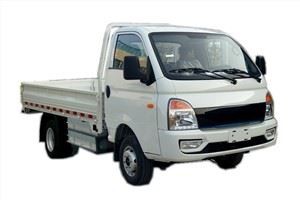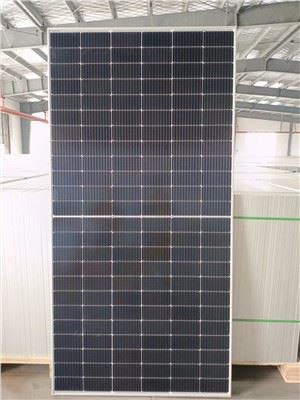Understanding Rolloff Parts: A Comprehensive Guide
Introduction
Rolloff parts play a vital role in the waste management and container rental industry. They are essential for the operation of roll-off dumpster trailers and provide the necessary functionality for transporting and dumping waste effectively. Understanding these components is crucial for business operators, mechanics, and anyone interested in the logistics of waste disposal. In this article, we’ll explore what rolloff parts are, their importance, types, maintenance, troubleshooting, and much more.
What Are Rolloff Parts?
Rolloff parts refer to the specific components that make up roll-off dumpsters and trailers. These parts ensure that roll-off dumpsters can be loaded, transported, and unloaded efficiently. The key parts include hydraulic systems, cables, beds, and pivot points, among others. Each component has a particular function, contributing to the overall effectiveness and safety of the waste management process.
The Importance of Rolloff Parts
- Operational Efficiency: Proper rolloff parts ensure that dumpsters are easy to transport, reducing the time taken for waste collection.
- Safety: High-quality components minimize the risk of accidents during loading and unloading.
- Durability: Reliable rolloff parts can withstand the rigors of constant use in demanding environments.
Key Components of Rolloff Parts
Hydraulic System
The hydraulic system is arguably the most critical component of a rolloff dumpster. It allows operators to raise and lower the dumpster, facilitating easy loading and unloading.
Key Features:
- Hydraulic cylinders
- Hydraulic fluid
- Hydraulic pumps
Cables and Chains
Cables and chains are used for securing the roll-off dumpster and for the operation of the lifting mechanism. They must be in excellent condition to ensure safe operation.
Types of Cables:
- Steel cables
- Chain hoists
Roll-off Bed
The roll-off bed is the flat surface where the dumpster rests. It’s designed to be durable and resistant to wear and tear.
Materials Used:
- Steel
- Aluminum
Pivot Points
Pivot points are essential for the movement of the dumpster during loading and unloading. They allow the system to operate smoothly, reducing mechanical stress.
Types of Rolloff Parts
Standard Rolloff Parts
Standard rolloff parts are typically found in most dumpsters and include basic components like beds, hydraulic systems, and safety chains.
Custom Rolloff Parts
Custom rolloff parts may be necessary for specialized applications. These include extra supports, additional hydraulic features, or enhanced safety mechanisms tailored to specific needs.
Maintenance of Rolloff Parts
Regular maintenance of rolloff parts is crucial for ensuring longevity and safety. Here are some essential tips for maintaining these components:
Inspection Schedule
Set a regular inspection schedule to check for wear and tear. Look for signs of rust, corrosion, or damage to critical components.
Lubrication
Ensure all moving parts are adequately lubricated. This helps to minimize friction and prevent premature wear.
Hydraulic Fluid Levels
Regularly check and top off hydraulic fluid levels as needed. Low fluid levels can lead to inefficiencies or system failures.
Common Issues and Troubleshooting
Like any mechanical equipment, rolloff parts can encounter problems. Here are some common issues and their solutions:
Hydraulic Failure
If the hydraulic system fails to lift the dumpster, check the hydraulic fluid levels and inspect for leaks.
Worn Cables or Chains
Worn cables or chains can lead to unsafe operations. Replace them immediately if you notice fraying or damage.

Practical Examples of Rolloff Parts in Use
Example 1: Construction Site
In a construction site, rolloff dumpsters are essential for handling debris. Proper maintenance of their hydraulic systems ensures that they can be loaded quickly, facilitating a constant workflow.

Example 2: Residential Cleanouts
For residential cleanouts, having the right rolloff parts, like a durable bed and secure chains, ensures that homeowners can rent dumpsters for their renovation projects without worry.
Choosing the Right Rolloff Parts Supplier
Finding a reliable supplier for rolloff parts can make all the difference. Here are some criteria to consider:
Quality of Materials
Ensure the supplier uses high-quality materials for their components. This will affect the durability and safety of your rolloff systems.
Customer Support
A good supplier will offer solid customer support, helping you with any issues or questions that arise post-purchase.
Warranty and Guarantees
Check if the supplier offers warranties on their parts. This can safeguard your investment.
FAQs about Rolloff Parts
1. What are the essential rolloff parts to consider for maintenance?
The essential rolloff parts to maintain include hydraulic systems, cables, chains, and the roll-off bed. Regular checks ensure safety and functionality.

2. How often should I inspect my rolloff parts?
It is best to inspect rolloff parts at least once a month or after every job, whichever comes first. Regular inspections can prevent major issues.
3. Can I replace rolloff parts myself?
While some rolloff parts can be replaced with basic tools and knowledge, it’s recommended to consult a professional mechanic for complex systems like hydraulics.
4. What should I do if my rolloff dumpster won’t lift?
If your rolloff dumpster won’t lift, check the hydraulic fluid levels and inspect for leaks. If you find a leak or other significant issue, contact a professional technician.
5. How do I identify worn cables or chains?
Worn cables and chains will show signs of fraying, rust, or discoloration. If you notice these signs, they should be replaced immediately.
6. Are custom rolloff parts worth the investment?
Custom rolloff parts can be worth the investment if you have specific needs that standard parts cannot accommodate. They can improve safety and efficiency tailored to your operations.
